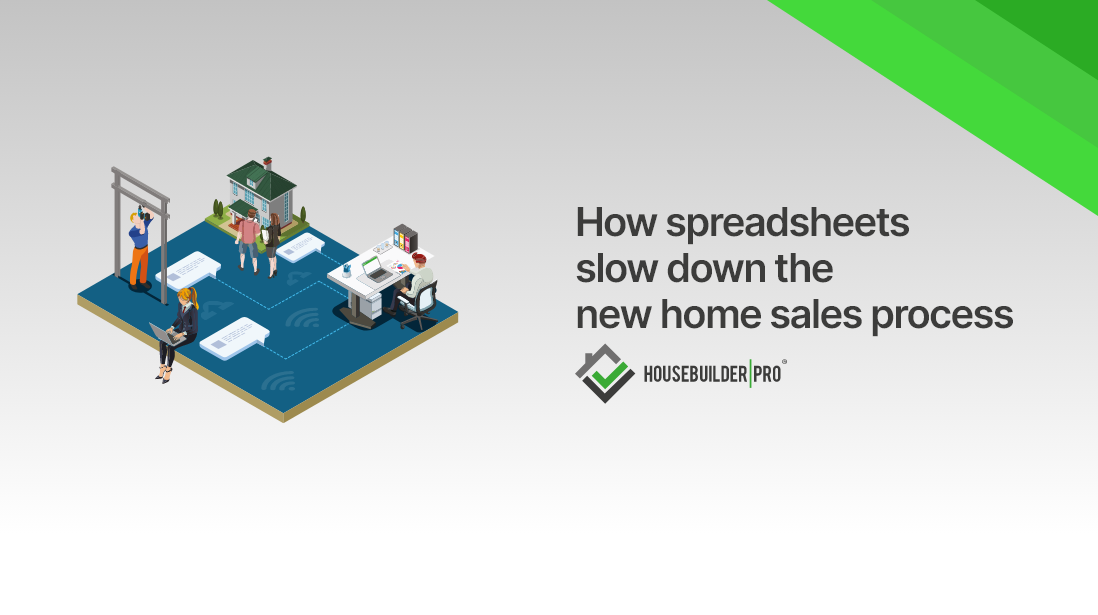Data entry errors and inconsistencies
Manual data entry is a common practice when using spreadsheets. This method is not only time-consuming but also prone to human error. A single mistyped figure or misplaced decimal can lead to inaccurate pricing, incorrect financial projections, and flawed market analyses. Such errors can result in miscommunication with clients, delays in sales processes, and potential financial losses. Furthermore, inconsistent data entry practices among different team members can create discrepancies that complicate data reconciliation efforts.
Limited collaboration and access
Spreadsheets are not inherently collaborative tools. While platforms like Google Sheets have made strides in allowing multiple users to work on a document simultaneously, these solutions still fall short compared to specialized new homes software. In a sales environment where team collaboration is crucial, the limitations of spreadsheets can hinder productivity. Estate agents, sales managers, and other stakeholders often need to access and update the same information quickly. Spreadsheets, especially those stored locally, do not offer the same level of accessibility and real-time updates as cloud-based real estate management platforms.
Inefficient data management
The new home sales process involves handling vast amounts of data, from customer information and sales figures to inventory details and market trends. Spreadsheets, while capable of storing large datasets, are not designed for complex data management. Searching for specific information, generating comprehensive reports, or analyzing trends can be cumbersome and time-intensive. Housebuilder Pro, on the other hand, offers powerful data management and analytical tools that streamline these processes, enabling quicker decision-making and improved strategic planning.
Lack of integration with other systems
Modern new home sales operations often rely on a suite of integrated tools, including Customer Relationship Management (CRM) systems, marketing automation software, and financial management platforms. Spreadsheets typically do not integrate seamlessly with these systems, necessitating manual data transfers that are both time-consuming and error-prone. The lack of integration can lead to data silos, where critical information is isolated in separate systems, further complicating the sales process and reducing overall efficiency.
Inadequate reporting and analytics
Spreadsheets offer basic reporting capabilities, but they pale in comparison to the robust analytics features available in dedicated real estate software. Advanced tools like Housebuilder Pro can provide real-time insights into financial predictions, snags and customer acquisition. These insights are invaluable for making informed decisions, optimising sales strategies, and improving customer satisfaction. Spreadsheets’ limited analytical capabilities mean that sales teams may miss out on critical trends and opportunities, slowing down the sales cycle.
While spreadsheets have their place in various business operations, their limitations make them less suitable for the complex and fast-moving world of new home sales. The reliance on spreadsheets can lead to inefficiencies, errors, and security vulnerabilities that ultimately slow down the sales process. To remain competitive and meet the demands of modern real estate markets, industry professionals should consider transitioning to specialized real estate software. These tools offer enhanced collaboration, data management, integration, analytics, and security, driving greater efficiency and success in new home sales.




